Traditionalist Issues
 |
 |
 |
 |
 |
 |
 |
Dialogue Mass - CXLI
Scholasticism vs Personalism & Subjectivism
Following from the previous article, this brings us to the next point in Ratzinger’s list of objections – that Scholasticism is out of touch with real life as it is lived in modern times, and that we need a “living,” not a dead theology to address today’s issues. This notion, incidentally, has become a shibboleth among contemporary adherents of the “New Theology.” Their innovations in doctrine are often qualified by the word “living”: a living Magisterium, a living Gospel, a living Ethics, a living Evangelization etc. all presented in contra-distinction to previous Church teaching now considered “dead.”
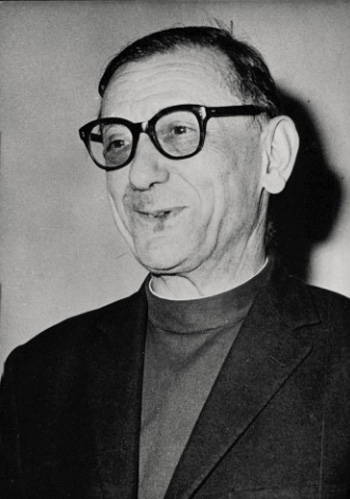 A prime example of this outlook is provided by Ratzinger’s colleague, Jean Daniélou SJ, who was an advisor at Vatican II and was later raised to the cardinalate. He stated in the Jesuit journal,
Études, that Scholasticism represents a “rupture between theology and life.” 1 The main thrust of his argument – with which Ratzinger was in complete agreement – was that Scholasticism was alien not only to the contemporary philosophical trends but also from the daily life of the People of God. He criticized it for being too objective and for not paying enough attention to the subjective side of human nature. His conclusion was that Scholasticism is incapable of offering them anything of spiritual value, and that what was needed in its place was a theology “entirely engaged in the building up of the body of Christ.” 2 based on “dialogue.”
A prime example of this outlook is provided by Ratzinger’s colleague, Jean Daniélou SJ, who was an advisor at Vatican II and was later raised to the cardinalate. He stated in the Jesuit journal,
Études, that Scholasticism represents a “rupture between theology and life.” 1 The main thrust of his argument – with which Ratzinger was in complete agreement – was that Scholasticism was alien not only to the contemporary philosophical trends but also from the daily life of the People of God. He criticized it for being too objective and for not paying enough attention to the subjective side of human nature. His conclusion was that Scholasticism is incapable of offering them anything of spiritual value, and that what was needed in its place was a theology “entirely engaged in the building up of the body of Christ.” 2 based on “dialogue.”
But the whole point of Scholasticism was to explicate reality, “what is” and “what is not,” and to elucidate the difference between truth and error in doctrine, right and wrong in morality. It is necessarily of enduring value in our age as much as it has always been in the past because it directs the everyday decisions and actions of people’s lives. One cannot come across anything more relevant than that.
Concerning Ratzinger’s dismissal of neo-Scholasticism as a “failure,” it seems that he shared the modernists’ scepticism about the possibility of attaining certitude concerning the Faith:
“It is my view that the neo-scholastic rationalism that was trying to reconstruct the praeambula Fidei, the approach to Faith, with pure rational certainty, by means of rational argument that was strictly independent of any faith, has failed.”3
The praeambula Fidei (the preambles of Faith) are, according to Aquinas, truths about God that can be known using natural reason. In the pre-Vatican II Scholastic tradition, they were presented in strictly demonstrable, propositional form (syllogisms), and formed the basis for Catholic Apologetics. But this approach was rejected by some theologians of the 19th and 20th centuries who preferred a Biblical and personalistic approach.
Newman rewarded by Benedict XVI for undermining Scholasticism
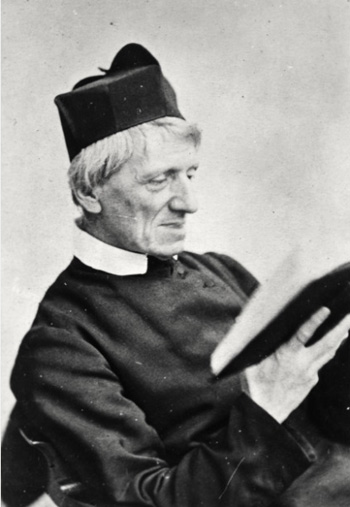 Card. Newman was among the first of these theologians to cast doubt on the efficacy of the Scholastic method to explain the truth, arguing in A Grammar of Assent for a wider, more “personalist” interpretation of the praeambula Fidei to include the evidence of the lived experiences of the majority of Catholics. He evidently felt that most ordinary Catholics lacked the capacity to grasp the reasoning behind the Church’s system of Apologetics even when explained to them by their Pastors in sermons and catechisms. This opinion was as patronizing as it was offensive: it suggests that Catholics in general, being untrained in Scholastic theology, are so bereft of reasoning powers that they are incapable of understanding what lies outside their own lives and feelings.
Card. Newman was among the first of these theologians to cast doubt on the efficacy of the Scholastic method to explain the truth, arguing in A Grammar of Assent for a wider, more “personalist” interpretation of the praeambula Fidei to include the evidence of the lived experiences of the majority of Catholics. He evidently felt that most ordinary Catholics lacked the capacity to grasp the reasoning behind the Church’s system of Apologetics even when explained to them by their Pastors in sermons and catechisms. This opinion was as patronizing as it was offensive: it suggests that Catholics in general, being untrained in Scholastic theology, are so bereft of reasoning powers that they are incapable of understanding what lies outside their own lives and feelings.
This line of thinking leads naturally to the conclusion that they must only be given explanations of the Faith that are “meaningful” and relevant to their everyday experiences. It also facilitates the rise of subjectivism within modern Church teaching, and explains the unwarranted importance given to depth psychology in the Vatican II documents.
It was an approach to the Faith that commended itself to modernists and progressivists, including Pope Benedict who beatified Newman as a step to Novus Ordo sainthood, which was accomplished by Francis in 2019.
The Scholastic method ably defended
But this is a misunderstanding of the nature of Scholasticism and was ably refuted by an early 20th century Jesuit theologian, Fr. John O’Fallon Pope:
“Scholastic Theology does not seek to rationalize Faith by undermining or supplanting its formal object and by explaining its material object away, but to strengthen Faith by indirectly confirming it, by showing how compatible it is with our rational nature, and by enhancing and multiplying the inducements to believe.” 4
Pope Pius XII denounced those who dismiss Scholasticism as being “devoid of true certainty because it is based on theological reasoning,” and went on to demonstrate that “this philosophy, acknowledged and accepted by the Church, safeguards the genuine validity of human knowledge, the unshakeable metaphysical principles of sufficient reason, causality and finality, and finally the mind’s ability to attain certain and unchangeable truth”. (Humani generis, 1950, §§ 17, 29)
Ratzinger, however, appealed for support to the theologian, Karl Barth, who represented the classical Protestant view on this issue:
“Karl Barth was right when he rejected philosophy as a basis for faith that is independent of faith itself; for in that case, our faith would in the end be based on changing philosophical theories.” 5
But the premise of this argument is false because it misses the point. First, no one can be expected to be intellectually convinced of the rationality of the faith by merely circular reasoning (“Faith Alone”). That way leads to fideism. (Karl Barth maintained his commitment to this fundamental tenet of the Protestant Reformation). In order to demonstrate the objective truth of Catholic doctrine by an appeal to reason, it is necessary to have a rational, scientific explanation that is independent of faith itself. For this purpose, the pre-Vatican II Church had not made indiscriminate use of changing philosophical theories, but of the particular science of Aristotelian metaphysics.
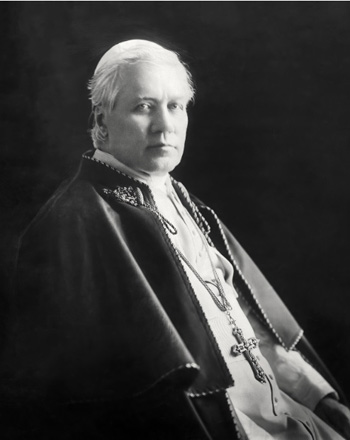 Pius X explained that Thomistic Philosophy must “be made the basis of sacred science” i.e. theology:
Pius X explained that Thomistic Philosophy must “be made the basis of sacred science” i.e. theology:
“We will and ordain that … on this philosophical foundation the theological edifice is to be solidly raised.” (Pascendi, 1907, §§ 45, 46)
In the same breath, the Pope warned of the grave consequences of neglecting metaphysics:
“Let professors remember that they cannot set St. Thomas aside especially in metaphysical questions without grave detriment.”
Let us note in passing that his warning was almost universally ignored after Vatican II, and was often paid lip service to in some seminaries before the Council. As for the Council itself, it makes no mention of metaphysics in any of its documents.
Besides, it was not just any philosophy in contention. The pre-Vatican II Popes were unanimous in their view that sound theology must be based on sound philosophy. Pope Leo XIII, for example, quoting his 16th century predecessor, Sixtus V, commended Scholasticism as the quintessential science of theological reasoning that ensures a correct understanding of the Faith in harmony with what the Church has always taught:
“The knowledge and use of so salutary a science, which flows from the fertilizing founts of the sacred writings, the Sovereign Pontiffs, the holy Fathers and the Councils, must always be of the greatest assistance to the Church, whether with the view of really and soundly understanding and interpreting the Scriptures, or more safely and to better purpose reading and explaining the Fathers, or for exposing and refuting the various errors and heresies.” (Aeterni Patris, 1879, § 15)
No wonder that Protestant theologians shunned that kind of Scholasticism and Catholic ecumenists have been eager to bury it.
The ‘ressourcement’ theologians rely only on their own opinions
Finally, we come to the last reason why Ratzinger eschewed Scholasticism: He was part of the progressivist group of theologians who formed the “ressourcement” movement which based theology directly on the Bible and the Church Fathers. This involved rethinking and reformulating the Faith by reinterpreting the Bible and the Church Fathers. The futility of such an exercise undertaken in contra-distinction to Scholasticism is evident from the fact that it gives no guarantee of certitude, no “safe” criteria by which we may judge the orthodoxy of the new interpretations of the Bible and the Fathers.
We cannot rely on the “ressourcement” movement, however, as a source of certitude, as it furnished only the personal insights and opinions of progressivist theologians. Their subjectivist approach has succeeded only in confirming people in their own personal beliefs and sowing doctrinal confusion and theological disorientation. Instead of an intellectually rigorous approach, they have given us woolly-minded and sentimental concepts in which everything – even Revelation itself – has to be seen from a “dialogue” point of view. In our day, however, “dialogue” is simply a camouflage for downplaying the unique claims of the Catholic Church, and is used as a replacement for proselytism and condemnation of doctrinal errors.
When we reflect that no other period of Church History has witnessed a concerted, hostile reaction to Scholasticism supported by her own leaders, we are prompted to look behind the pretexts given by progressivist theologians to find the real reasons for their rejection of Scholasticism: They were convinced, in their hubris, that they were capable of forging a new and better truth than that expressed in the Manuals.
Continued


Fr. Jean Danielou, a perito at Vatican II
But the whole point of Scholasticism was to explicate reality, “what is” and “what is not,” and to elucidate the difference between truth and error in doctrine, right and wrong in morality. It is necessarily of enduring value in our age as much as it has always been in the past because it directs the everyday decisions and actions of people’s lives. One cannot come across anything more relevant than that.
Concerning Ratzinger’s dismissal of neo-Scholasticism as a “failure,” it seems that he shared the modernists’ scepticism about the possibility of attaining certitude concerning the Faith:
“It is my view that the neo-scholastic rationalism that was trying to reconstruct the praeambula Fidei, the approach to Faith, with pure rational certainty, by means of rational argument that was strictly independent of any faith, has failed.”3
The praeambula Fidei (the preambles of Faith) are, according to Aquinas, truths about God that can be known using natural reason. In the pre-Vatican II Scholastic tradition, they were presented in strictly demonstrable, propositional form (syllogisms), and formed the basis for Catholic Apologetics. But this approach was rejected by some theologians of the 19th and 20th centuries who preferred a Biblical and personalistic approach.
Newman rewarded by Benedict XVI for undermining Scholasticism

Card. Newman was against Scholasticim
This line of thinking leads naturally to the conclusion that they must only be given explanations of the Faith that are “meaningful” and relevant to their everyday experiences. It also facilitates the rise of subjectivism within modern Church teaching, and explains the unwarranted importance given to depth psychology in the Vatican II documents.
It was an approach to the Faith that commended itself to modernists and progressivists, including Pope Benedict who beatified Newman as a step to Novus Ordo sainthood, which was accomplished by Francis in 2019.
The Scholastic method ably defended
But this is a misunderstanding of the nature of Scholasticism and was ably refuted by an early 20th century Jesuit theologian, Fr. John O’Fallon Pope:
“Scholastic Theology does not seek to rationalize Faith by undermining or supplanting its formal object and by explaining its material object away, but to strengthen Faith by indirectly confirming it, by showing how compatible it is with our rational nature, and by enhancing and multiplying the inducements to believe.” 4
Pope Pius XII denounced those who dismiss Scholasticism as being “devoid of true certainty because it is based on theological reasoning,” and went on to demonstrate that “this philosophy, acknowledged and accepted by the Church, safeguards the genuine validity of human knowledge, the unshakeable metaphysical principles of sufficient reason, causality and finality, and finally the mind’s ability to attain certain and unchangeable truth”. (Humani generis, 1950, §§ 17, 29)
Ratzinger, however, appealed for support to the theologian, Karl Barth, who represented the classical Protestant view on this issue:
“Karl Barth was right when he rejected philosophy as a basis for faith that is independent of faith itself; for in that case, our faith would in the end be based on changing philosophical theories.” 5
But the premise of this argument is false because it misses the point. First, no one can be expected to be intellectually convinced of the rationality of the faith by merely circular reasoning (“Faith Alone”). That way leads to fideism. (Karl Barth maintained his commitment to this fundamental tenet of the Protestant Reformation). In order to demonstrate the objective truth of Catholic doctrine by an appeal to reason, it is necessary to have a rational, scientific explanation that is independent of faith itself. For this purpose, the pre-Vatican II Church had not made indiscriminate use of changing philosophical theories, but of the particular science of Aristotelian metaphysics.

Thomism must ‘be made the basis of sacred science’
“We will and ordain that … on this philosophical foundation the theological edifice is to be solidly raised.” (Pascendi, 1907, §§ 45, 46)
In the same breath, the Pope warned of the grave consequences of neglecting metaphysics:
“Let professors remember that they cannot set St. Thomas aside especially in metaphysical questions without grave detriment.”
Let us note in passing that his warning was almost universally ignored after Vatican II, and was often paid lip service to in some seminaries before the Council. As for the Council itself, it makes no mention of metaphysics in any of its documents.
Besides, it was not just any philosophy in contention. The pre-Vatican II Popes were unanimous in their view that sound theology must be based on sound philosophy. Pope Leo XIII, for example, quoting his 16th century predecessor, Sixtus V, commended Scholasticism as the quintessential science of theological reasoning that ensures a correct understanding of the Faith in harmony with what the Church has always taught:
“The knowledge and use of so salutary a science, which flows from the fertilizing founts of the sacred writings, the Sovereign Pontiffs, the holy Fathers and the Councils, must always be of the greatest assistance to the Church, whether with the view of really and soundly understanding and interpreting the Scriptures, or more safely and to better purpose reading and explaining the Fathers, or for exposing and refuting the various errors and heresies.” (Aeterni Patris, 1879, § 15)
No wonder that Protestant theologians shunned that kind of Scholasticism and Catholic ecumenists have been eager to bury it.
The ‘ressourcement’ theologians rely only on their own opinions
Finally, we come to the last reason why Ratzinger eschewed Scholasticism: He was part of the progressivist group of theologians who formed the “ressourcement” movement which based theology directly on the Bible and the Church Fathers. This involved rethinking and reformulating the Faith by reinterpreting the Bible and the Church Fathers. The futility of such an exercise undertaken in contra-distinction to Scholasticism is evident from the fact that it gives no guarantee of certitude, no “safe” criteria by which we may judge the orthodoxy of the new interpretations of the Bible and the Fathers.
We cannot rely on the “ressourcement” movement, however, as a source of certitude, as it furnished only the personal insights and opinions of progressivist theologians. Their subjectivist approach has succeeded only in confirming people in their own personal beliefs and sowing doctrinal confusion and theological disorientation. Instead of an intellectually rigorous approach, they have given us woolly-minded and sentimental concepts in which everything – even Revelation itself – has to be seen from a “dialogue” point of view. In our day, however, “dialogue” is simply a camouflage for downplaying the unique claims of the Catholic Church, and is used as a replacement for proselytism and condemnation of doctrinal errors.
When we reflect that no other period of Church History has witnessed a concerted, hostile reaction to Scholasticism supported by her own leaders, we are prompted to look behind the pretexts given by progressivist theologians to find the real reasons for their rejection of Scholasticism: They were convinced, in their hubris, that they were capable of forging a new and better truth than that expressed in the Manuals.
Continued
- Jean Daniélou SJ, "Les orientations présentes de la pensée religieuse," Études, vol. 249, 1946, p. 6.
- Ibid., p. 17.
- J. Ratzinger, Truth and Tolerance, p. 136.
- J J. O’Fallon Pope, SJ, “A Plea for Scholastic Theology.” Journal of Theological Studies, vol. 5, n. 18, Jan. 1904, p. 177. Fr. O’Fallon Pope (1850-1934) was Master of Campion Hall, University of Oxford, from 1900 to 1915.
- Ibid.
Posted August 12, 2024

______________________
______________________
 Volume I |
 Volume II |
 Volume III |
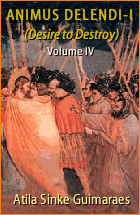 Volume IV |
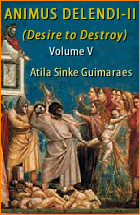 Volume V |
 Volume VI |
 Volume VII |
 Volume VIII |
 Volume IX |
 Volume X |
 Volume XI |
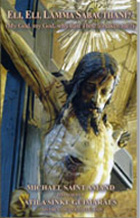 Special Edition |


